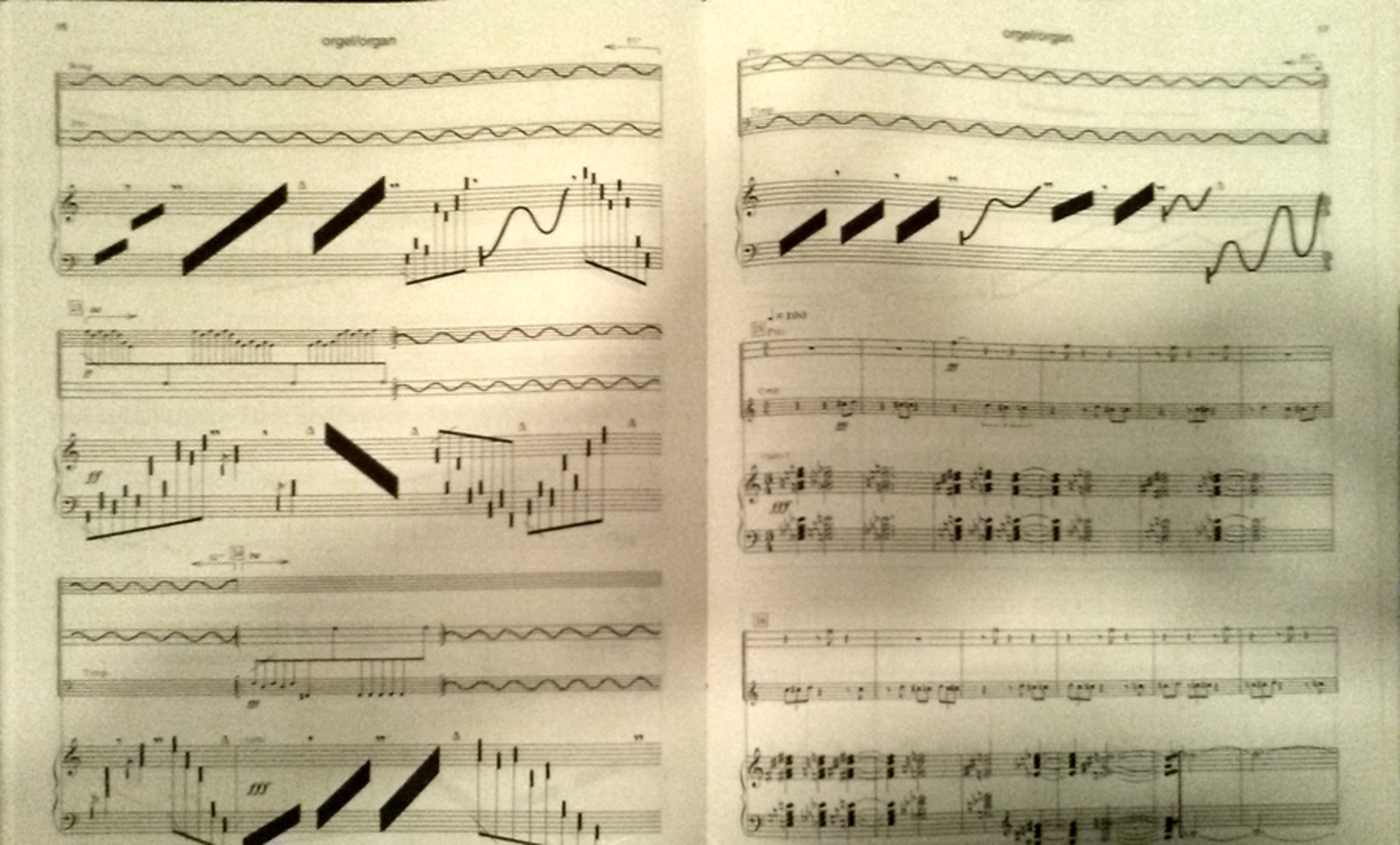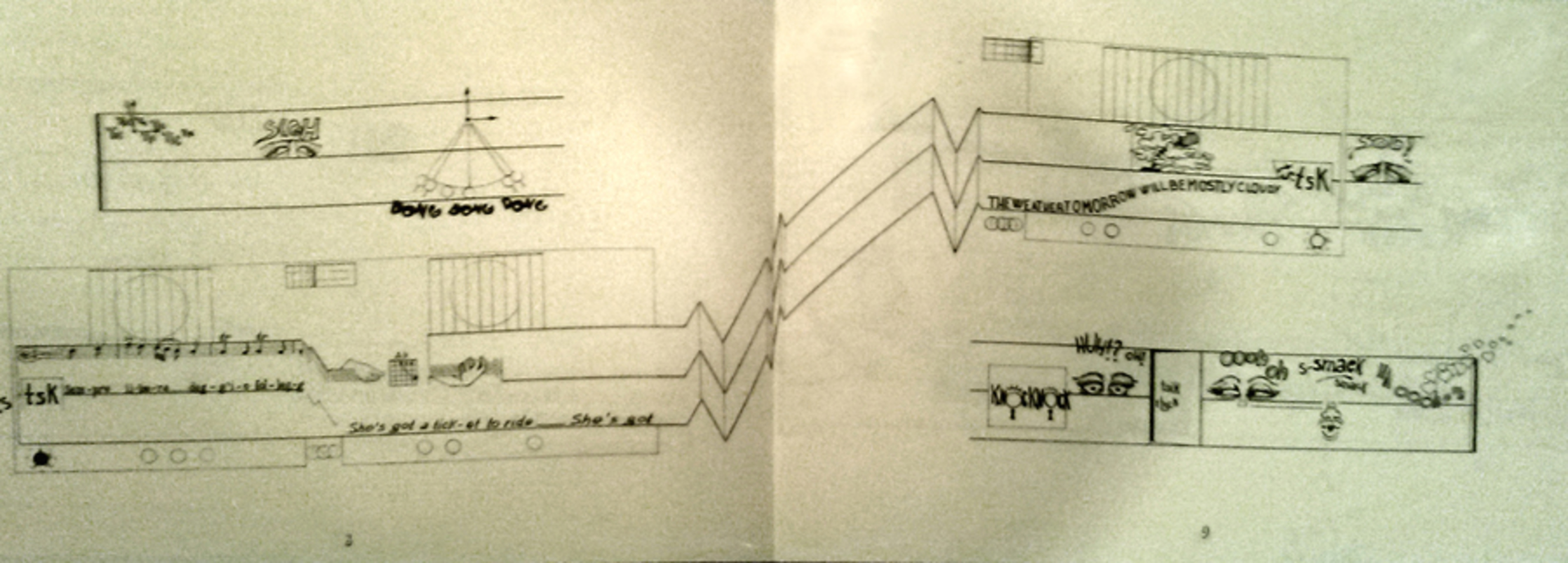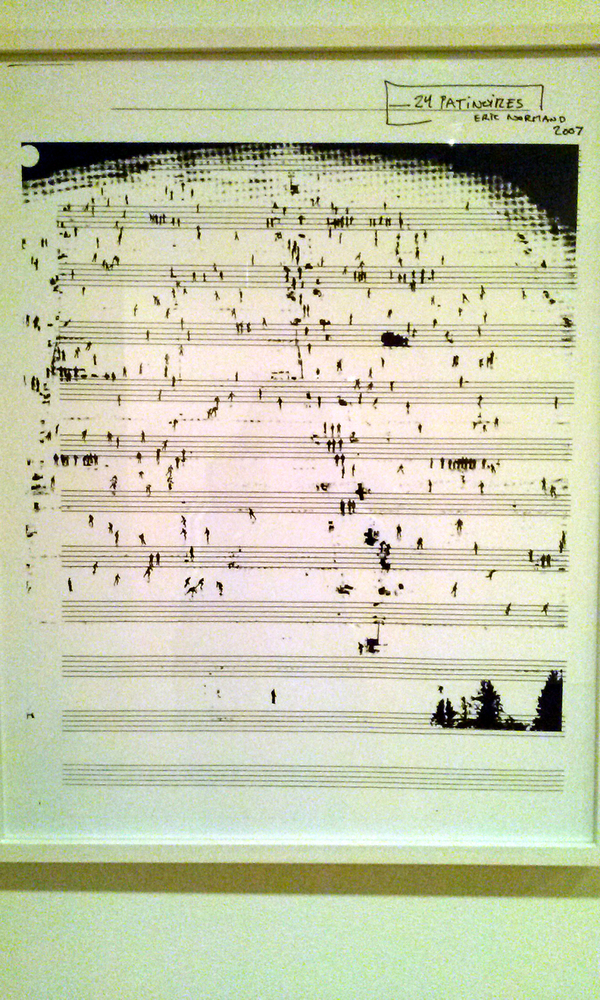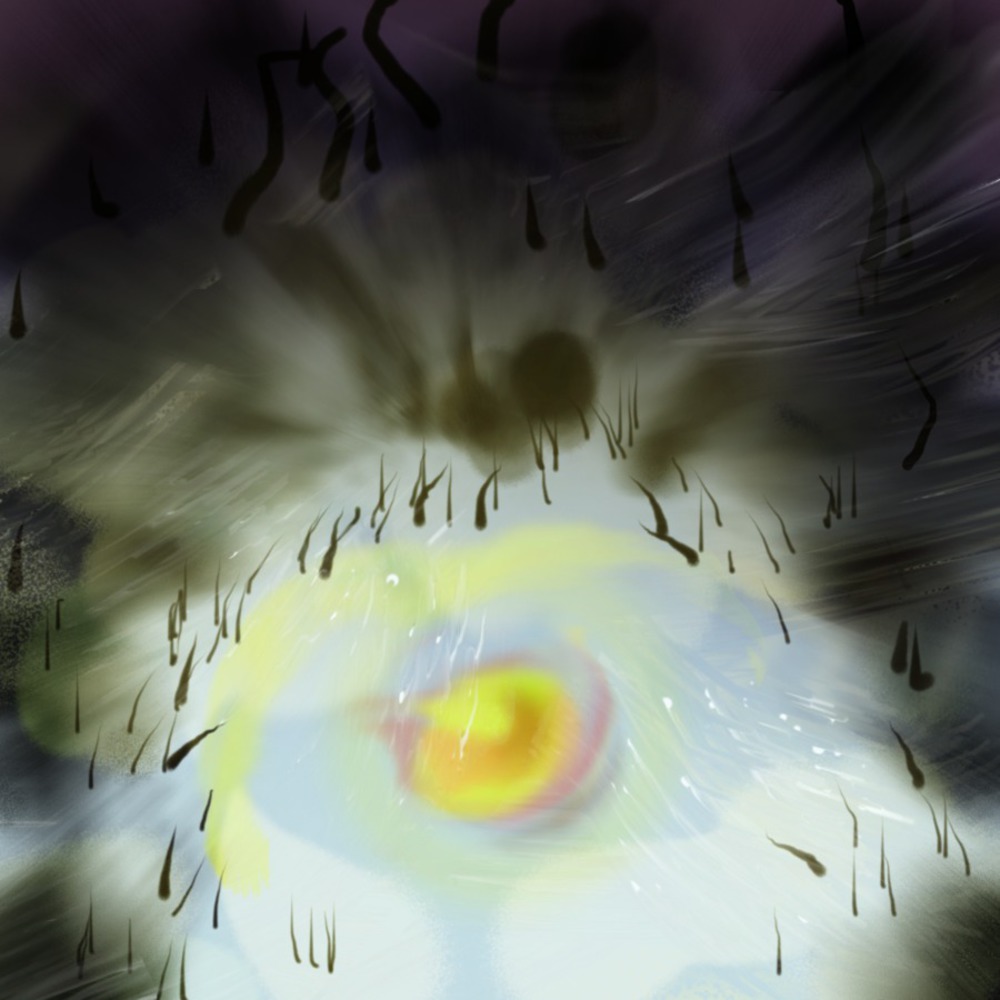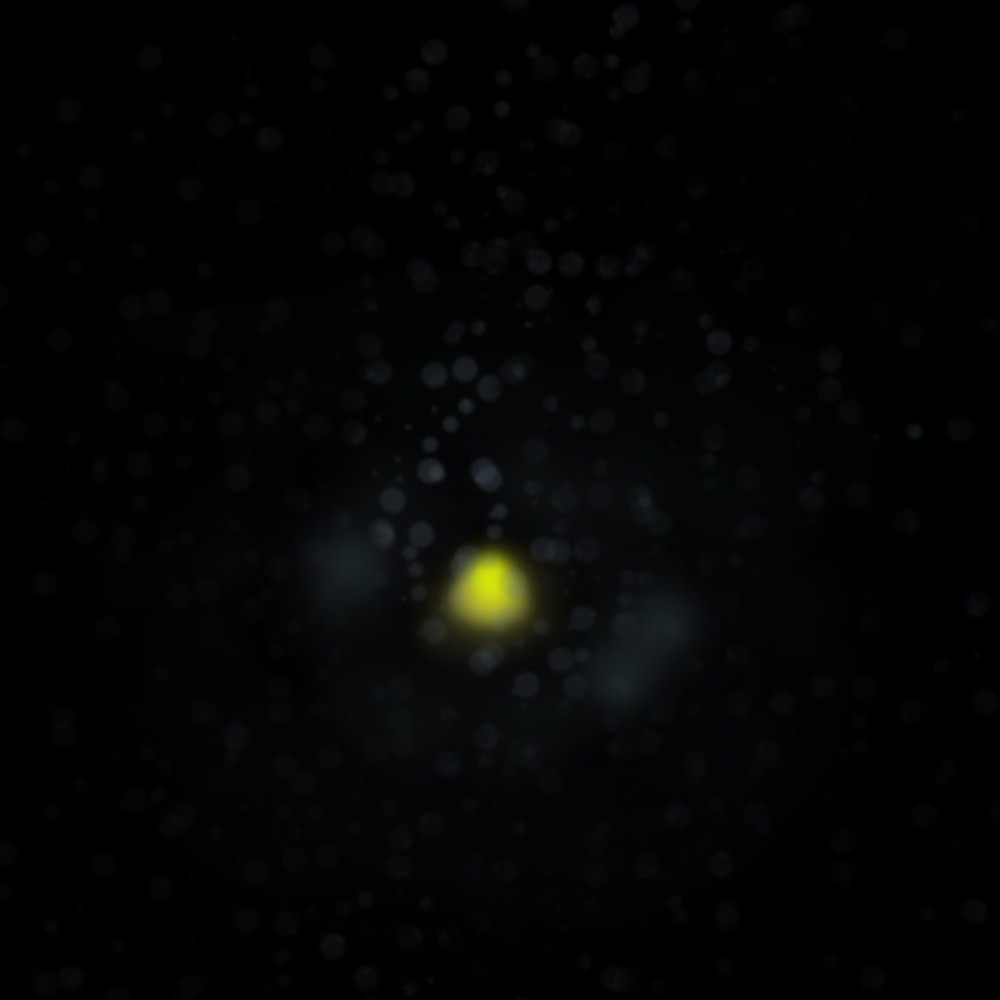At first glance, the piece bears similarity to the other works presented; it looks figurative, more so than the other pieces, but is still a score that is meant to be interpreted as sound. Unfortunately, given the restraints of the technology I have, it may not be immediately prevalent online what the primary distinction between the pieces above and this one is; in short, this piece is not only a score to be interpreted, but it is also an art piece in of itself. That alone gave me a unique experience amidst the other pieces in the exhibition.
Experience & Response
My original response broke the 200-word limit three times over (And I was trying to be compact!), so I will summarize:
The piece felt stark at first, given how it was black on white, when the other interpretive scores had a Manila paper backing. The messy, black blotches caught my eye, and they contrast with the orderly staff on the same canvas. In contrast to the other interpretive scores, the 'notes' here had vertical movement, perpendicular to the horizontal direction of the staff. I Googled Éric Normand and found that he was a guitarist, so I wondered if black dots were meant to be tabs rather than notes.
Once I realized each note was the silhouette of a person, the work became warmer and friendlier. I understood why the piece was named on ice, as this score wasn't just a score, but a scene of a town of people on an ice rink. The black blotches were not messy, but instead organic to the scene. Not only did the people have meaning, but the 'trees' in the foreground and 'sun' in the background also did.
As these works are meant to be interpreted as music, I imagined something wintry and Christmas-like. I wondered what I would have created if I had responded with music rather than try to emulate the experience?
Product
I had to recapture the experience of a stark yet warm scene, all the while being musical in nature. After a moment’s worth of thought, I decided on depicting shapes similar to the barren trees of winter, stripped of their leaves. I wanted to convey a sense of community, though—not necessarily through human shapes. How would I imply music? How about a campfire singalong?
Well, let’s have at it.
(One hour later…)
A funny thing happened while I was developing an image representing my experience. I spend most of my hour trying to get my product idea working, scrapping half of my piece and trying to rework it to no avail in my remaining time. Then, in the last five minutes, I decided to throw away everything and start from scratch. And, I daresay, the product of my last five minutes captures my experience far better than the 55-minute labor.
